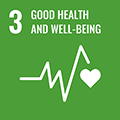For over 20 years, researchers at Queen’s have investigated the chemical contamination of foodstuffs for the benefit and safety of consumers around the world. In 2019 the team were called upon to identify the cause of a major contamination crisis in the UN World Food Programme (WFP).
Research Challenge
AN EMERGENCY FOOD CRISIS IN UGANDA
In April 2019, reports of multiple cases of serious food poisoning in Uganda led to many hundreds of hospitalizations and 5 fatalities, including 3 young children.
Alli incidences had occurred in regions where one particular World Food Programme product named ‘Super Cereal’. was supplied. The WFP immediately suspended all supplies of Super Cereal into these regions and this escalated to suspension of Super Cereal into 25 countries around the world
The cause was identified as highly-toxic tropane alkaloids found within WFP Super Cereal, leading to $15 million of cereal being withheld due to fears of widespread contamination, leaving many tens of thousands of recipients, mainly young children without adequate food
Professor Chris Elliott and his team at Queen’s University were contacted by the WFP to provide independent scientific support in the investigation.
Our Approach
INNOVATIVE RAPID SCREENING TECHNIQUES
The research team are experts in a variety of different rapid screening techniques such as combining molecular spectroscopy with chemometrics. They had recently developed advanced non-targeted high-resolution mass spectrometry (Q-ToF-MS) to ‘fingerprint’ foodstuffs to determine accidental contamination or deliberate fraud incidents.
The use of this highly skilled approach meant that all compounds in a sample can be profiled and compared against chemical databases to identify potential contaminants
By applying these innovative methodologies in Uganda, the team concluded that the cause of the food poisoning was due to the presence of the Tropane alkaloids (TA), atropine and scopolamine, in the Super Cereal distributed by the UN World Food Programme (WFP).
Crucially the research was able to show that all outbreaks were caused by a single batch of the Super Cereal, which meant that the remaining US$15 million of Super Cereal could now be despatched globally to the countries requiring aid.
Crucially the research was able to show that all outbreaks were caused by a single batch of the Super Cereal, which meant that the remaining US$15 million of Super Cereal could now be despatched globally to the countries requiring aid.
What impact did it make?
AVOIDING A POTENTIAL HUMANITARIAN DISASTER
Following this tracing breakthrough by the Queen’s team, WFP were able to safely resume the distribution of confirmed non-contaminated cereal, avoiding a potential humanitarian disaster due to lack of emergency food supplies.
The contribution of Professor Elliott and team to ensuring Food security and integrity globally has also resulted in the designation of the Institute for Global Food Security at Queen’s as a United Nations International Atomic Energy Agency (IAEA) collaborating centre.
Our impact
Impact related to the UN Sustainable Development Goals
Learn more about Queen’s University’s commitment to nurturing a culture of sustainability and achieving the Sustainable Development Goals (SDGs) through research and education.














